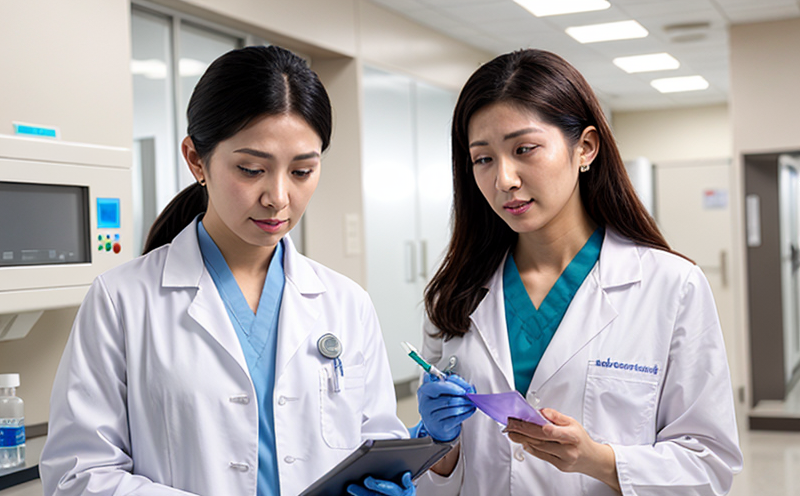ICH S6 Preclinical Safety Testing of Biopharmaceuticals
The International Conference on Harmonisation (ICH) Guideline S6 provides a framework for ensuring the safety and efficacy of biopharmaceutical products before they enter clinical trials. This guideline is pivotal in guaranteeing that preclinical testing aligns with global regulatory standards, fostering trust and facilitating smoother drug development processes.
Our lab specializes in providing ICH S6 compliant preclinical safety assessments for biopharmaceuticals. Our team of experts ensures that all tests are conducted according to the stringent requirements laid out by ICH. This includes a comprehensive suite of assays designed to evaluate toxicity, immunogenicity, and other potential safety concerns associated with biologics.
The initial stages of testing involve detailed characterization of the product, including its molecular structure, purity, and stability under various conditions. Following this, we conduct in vitro studies that assess the biological activity and potential adverse effects. In vivo studies follow, which are critical for understanding the pharmacokinetics and toxicological profile of the biopharmaceutical.
Our laboratory uses state-of-the-art technologies such as cell-based assays, animal models, and advanced analytical tools to provide robust data that supports regulatory submissions. The results of our tests are meticulously recorded and reported in a manner compliant with ICH guidelines S6, ensuring transparency and reliability for all stakeholders involved.
By adhering strictly to these guidelines, we ensure the highest standards of quality and safety in biopharmaceutical development. This not only enhances patient safety but also contributes significantly to the efficiency of drug approval processes worldwide.
Why It Matters
The importance of ICH S6 preclinical safety testing cannot be overstated. Regulatory compliance is crucial for ensuring that biopharmaceuticals meet rigorous quality standards before they reach the market. This not only protects public health but also streamlines the regulatory approval process, accelerating the time-to-market for innovative therapies.
Non-compliance with these guidelines can lead to delays in drug development, increased costs, and potential safety risks. By adhering to ICH S6, we ensure that our clients' products meet the highest global standards, thereby reducing the risk of regulatory issues down the line.
The results from such comprehensive testing are invaluable for decision-making processes within pharmaceutical companies. They provide critical insights into the safety profile of a biopharmaceutical, which can guide further development and refine clinical trial designs.
International Acceptance and Recognition
The ICH S6 guideline is widely recognized by regulatory authorities worldwide. This includes organizations such as the U.S. Food and Drug Administration (FDA), the European Medicines Agency (EMA), and the Pharmaceuticals and Medical Devices Agency in Japan (PMDA). Compliance with this standard ensures that your biopharmaceutical product meets the stringent requirements of multiple jurisdictions.
The acceptance of ICH S6 testing results by these regulatory bodies enhances the credibility of your product, making it easier to gain approval across different markets. This is particularly important for multinational pharmaceutical companies looking to develop and market their products globally.
By adhering to this guideline, we ensure that our clients' biopharmaceuticals are evaluated in a manner consistent with international best practices. This not only facilitates smoother regulatory processes but also helps build trust among patients and healthcare providers.
Environmental and Sustainability Contributions
- Eco-friendly Testing Procedures: Our laboratory employs sustainable practices in our testing procedures. We minimize waste generation by using reagent-free methods where possible, reducing the carbon footprint associated with biopharmaceutical development.
- Resource Efficiency: By optimizing our test protocols and utilizing advanced analytical techniques, we ensure efficient use of resources such as water, electricity, and chemicals.
Our commitment to sustainability does not stop at operational efficiency. We also strive to contribute positively to the environment by engaging in community-based initiatives that promote environmental awareness and conservation efforts.





